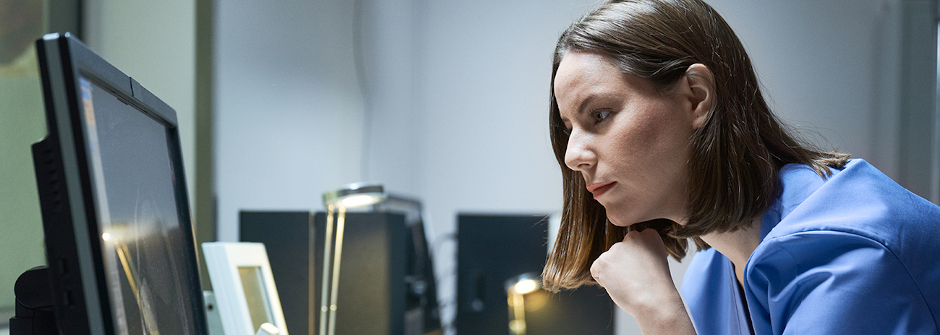
A College Guide for Students: A COVID-19 Resource
Dear Seton Hall Pirates,
During this time of stress, distance, and uncertainty please know that your Pirate family still has your back. We understand that you have needs that are important and that you may also need support. This guide was created to address some questions you might have as well as offer resources to help answer those questions.
How to get money:
If you lost a job or have reduced income
- File for unemployment insurance with your state's Department of Labor. You will file for unemployment in the state that you WORKED in, not the state that you LIVE in. Filing for unemployment will provide you with temporary income and the process for applying has been simplified.
- Unemployment Insurance
- Are you eligible for benefits? want to know how to file a claim?
- Check here to find state specific information
- Did you become infected with COVID-19 or ill during the pandemic, and therefore could not work? You may be able to apply for workers compensation. Contact your employer for their workers compensation policy and process.
Keep looking for work!
- Grocery stores and other essential services need new employees and are hiring. Check your city or town website for more information. Companies such as Amazon are also hiring, check their website for more information.
Resources may be hard to find. Websites such as Benefits.gov can help find specific types of assistance based on what state you live in.
How to handle your bills and other basic needs
If you are having trouble paying your credit card bill, utility bill, or other bills.
- Call the companies that send you bills to get your payments stopped or reduced. Be sure to detail that your financial circumstances have been affected due to COVID-19, which is information companies will need in to make adjustments to your payments.
- Companies such as Comcast and Spectrum are offering free or affordable broadband internet to low-income households. To qualify, you must be eligible for public assistance programs such as the National School Lunch Program, Medicaid, or SNAP.
Do you have federal student loans?
- Contact the Office of Financial Aid. The federal government is making it possible to ensure that your loans do not accumulate interest during this crisis and to keep you from having to make payments via the CARES Act. Find out what kinds of loans you have and whether you qualify.
Do you know about the CARES Act?
- On March 27, 2020, the U.S. House of Representatives passed, and the President signed into law the "Coronavirus Aid, Relief, and Economic Security Act" or the "CARES Act."
- The CARES Act includes provisions that apply to certain loans owed by some federal student loan borrowers.
- For specific information and a comprehensive FAQ about the CARES Act – click here.
Do you need to reduce your spending on food?
- Use a food pantry. Finding a local emergency food provider in your area is easy. Call 1(800) 5-HUNGER or visit here for locations near you.
- Other free and low-cost emergency food aid programs can be found here.
How to protect your health
How do I protect myself from COVID-19?
- Wear a mask.
- Maintain a physical distance from others of 6’.
- Avoid crowds.
- Wash your hands thoroughly and frequently with soap and water. (For a great example check it out here.)
- Increase your fluid intake.
- Avoid touching your eyes, nose, mouth, and face.
- Keep home/personal spaces clean; disinfect common surfaces.
- Cover your cough or sneeze with a tissue/paper towel and discard it immediately. If neither are available, the crook of your elbow is acceptable. DO NOT COUGH OR SNEEZE INTO YOUR HAND!
What if I feel sick?
COVID-19 causes a respiratory illness. Symptoms may include fever, cough and shortness of breath, runny nose, headache, and sore throat. In severe cases, the virus can cause pneumonia.
- If you are off-campus: Stay home and contact your medical provider over the phone.
- If you are on-campus: call (rather than visit) University Health Services immediately.
What if I am struggling with non-physical issues related to COVID-19?
- Seton Hall University encourages students to reach out to CAPS (973-761-9500) when in need, even if you are studying remotely.
- CAPS will provide remote support as needed and appropriate.
- Students are encouraged to contact Campus Ministry at (973) 761-9478 to speak with a member of our priest community.
How do I access CAPS services during the COVID-19 crisis?
- The hours of remote operation remain Monday-Friday from 8:45 a.m.-4:45 p.m.
- Current clients can call (973) 761-9500 or contact their counselor via email to determine whether remote support may be appropriate.
- Students who have never been to CAPS can receive support by calling (973) 761-9500. Our needs will be assessed via phone and we will provide support as needed and appropriate.
- If you or someone you know are experiencing a psychological emergency after business hours: Call (973) 761-9500 and speak directly via phone with a trained crisis counselor. Or call 911 or go to your nearest hospital emergency room.
If you need tips on how to maintain emotional wellness during the COVID-19 crisis, click here for more information.
Seton Hall University has been sending updates regarding their COVID-19 response. Please make sure you stay up to date by visiting this website for the latest updates and checking your Seton Hall University email regularly.
You can also find answers to Frequently Asked Questions.

